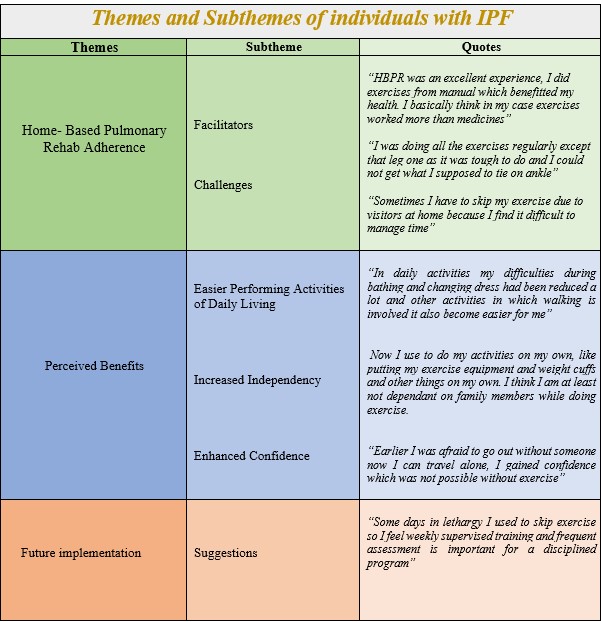Abstract
Background: IPF burden in India is high. PR is an effective intervention but access is limited globally and in India. HBPR models may offer a suitable option as PR services develop.
Aim: To explore the experiences of people with IPF participating in a HBPR programme.
Method: Individuals with IPF who have participated in a HBPR were invited to complete either a face-to-face or telephone semi-structured interview. The programme was a supported HBPR using a specifically designed paper-based manual for IPF based upon SPACEforCOPD© (Mitchell KE et al, 2014). Data were analysed using thematic analysis.
Results: Ten participants (6 male, 4 female, aged 59±16yr) were interviewed. Three themes were developed (Fig). Theme 1: HBPR adherence: Overall, patients felt they were adherent to HBPR, but struggled to perform leg-strengthening exercises. Social commitments sometimes prevented them from engaging with the intervention. Theme 2: Perceived benefits: Improvements in their ability to perform daily activities, psychological well-being and increased independence were reported. Theme 3: Future implementation: Participants suggested that some people may need additional support to the manual and that it should be made widely available in multiple languages.
Conclusion: HBPR using a paper-based manual may be an acceptable mode of delivery for individuals with IPF in India.
